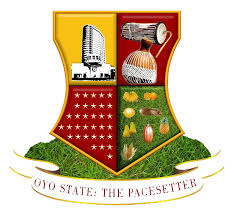Oyo workers to receive two months salaries as labour ends seven -week-old strike strike
Workers and pensioners in the civil service of Oyo State will receive January and February 2016 arrears of salaries and pensions within the next two weeks in a staggered arrangement.
While January salaries and pensions will be paid immediately from the available N3.49bn in the state coffers, the February salaries and pension will follow within the next two weeks on the receipt of the next allocation from the Federation Account.
This was the highlight of the agreement reached between the state government and labour leaders culminating in the suspension of the over seven-week-old strike by the workforce, on Monday evening.
The agreement was signed by the Secretary to the State Government, Mr. Olalekan Alli; Head of Service, Mr. Soji Eniade; Commissioner for Finance and Budget, Mr. Abimbola Adekanmbi, among others on the side of the government.
The State Chairman of the Nigeria Labour Congress, Comrade Waheed Olojede; State President of the Nigeria Union of Local Government Employees, Comrade Bayo Titilola-Sodo; State Secretary of the Nigeria Union of Pensioners, Comrade Olusegun Abatan, were among labour leaders that endorsed the agreement.
The state government also agreed to prevail on banks to grant workers with loan obligations a moratorium of two months on their January and February salaries and pensions.
The agreement reads in part, “That the total amount received from the Federation Account in the month of June was N2.1bn; and additional N1.39bn, being the first tranche of the budget support facility received from the Federal Government.
“This brings the total available sum to N3.49bn in the government coffers that could immediately be utilized for payment of salaries, wages and pensions of the state workforce for the month of January.
“That salaries and pensions for two months be paid within two weeks (of the agreement) on the receipt by the state of her share of Federal allocation accordingly. That there would be the need for sacrifice from both sides resulting in adjustments of the state’s obligations and entitlements to various stakeholders in order to realize this payment.
“That the same principle will be applicable to the payment of salary and pensions for February based on expectations that the next allocation from the Federation Account and budget support facility would be of the same value.”
The agreement also called for a formal letter of apology from principals, teachers and pupils of secondary schools engaged in the breach of peace and destruction of government properties, which the SSG said had already been tendered to the government.
On its part, the government agreed to withdraw all outstanding litigations against labour, while it was also mutually resolved that no worker would be victimized for participating in the industrial action.
The 14-member joint committee, inaugurated on July 12 arising from the June 6 industrial action, also reached a consensus that a further biometric audit of all public service workers and pensioners across the state be carried out as expedient.
The government challenged labour to partner it in seeking alternative sources of revenue to meet its obligations to the workforce in the face of the dwindling allocations from the Federation Account, as well as to plug leakages within the system.
Addressing journalists on the outcome of the joint committee’s parley, the SSG called on the workers to consider the suspended labour unrest a lesson for all on the imperativeness of dialogue to resolve disagreements.
Alli said, “Labour has given its firm assurance to work with government to further expand the revenue net of the State.
“From the various lessons learnt in the process of this industrial action, it is believed that with the transparency and openness of government and the understanding of labour, a recurrence of the situation would be avoided.”
The SSG called on the students, teachers and school administrators to go back to school for immediate resumption of academic works, while he made similar call on civil servants and local government employees.




